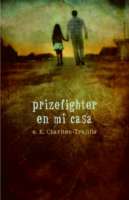
Following a car accident that left her with epilepsy, twelve-year-old Chula–with a little help from a visiting fearsome Mexican boxer–tries to deal with the repercussions her new condition has on her family, neighborhood, and school.
Materials from United States of America

Following a car accident that left her with epilepsy, twelve-year-old Chula–with a little help from a visiting fearsome Mexican boxer–tries to deal with the repercussions her new condition has on her family, neighborhood, and school.
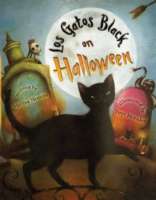
Follow los monstruos and los esqueletos to the Halloween party Under October’s luna, full and bright, the monsters are throwing a ball in the Haunted Hall. Las brujas come on their broomsticks. Los muertos rise from their coffins to join in the fun. Los esqueletos rattle their bones as they dance through the door. And the scariest creatures of all aren’t even there yet!This lively bilingual Halloween poem introduces young readers to a spooky array of Spanish words that will open their ojos to the chilling delights of the season.
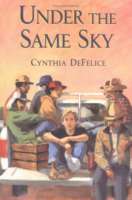
A teenager discovers racism and romance on his father’s farm. For his fourteenth birthday, Joe Pedersen wants a motorbike that costs nearly a thousand dollars. But his mom says the usual birthday gift is fifty dollars, and his dad wants Joe to earn the rest of the money himself and “find out what a real day’s work feels like.” Angry that his father doesn’t think he’s up to the job, Joe joins the Mexican laborers who come to his father’s farm each summer. Manuel, the crew boss, is only sixteen, yet highly regarded by the other workers and the Pedersen family. Joe’s resentment grows when his father treats Manuel as an equal. Compared with Manuel, Joe knows nothing about planting and hoeing cabbage and picking strawberries. But he toughs out the long, grueling days in the hot sun, determined not only to make money but to gain the respect of his stern, hardworking father. Joe soon learns about the problems and fears the Mexicans live with every day, and, before long, thanks to Manuel, his beautiful cousin Luisa, and the rest of the crew, Joe comes to see the world in a whole different way.In her sensitive new novel, Cynthia DeFelice explores our dependency on migrant workers and simultaneous reluctance to let these people into our country and into our lives.
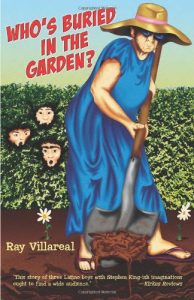 Seventh-grader Joshua knows his best friend Artie Mendoza is a liar. They have been friends since kindergarten, and Artie has told far-fetched stories for years. So when Artie tells Josh that there’s a body buried in Mrs. Foley’s garden, Josh doesn’t believe him at first. But when Josh walks by the Foleys’ house, he sees the mound of earth, about seven feet long and covered with flowers, and has to admit it does look like a grave. Artie insists that Mrs. Foley killed her husband and buried him in the back yard. The Foleys used to fight so loudly that kids walking in the alley behind their house could hear the arguments. Lately, there hasn’t been any sign of Mr. Foley. Still, Josh has his doubts. But Wolf Man, Artie’s other best friend, naively believes everything his friend tells him and encourages Artie’s plan to dig up the body. Josh doesn’t care much for Wolf Man, and if he’s honest with himself, he knows he’s jealous of the friendship between Wolf Man and Artie. Unlike Josh, they watch wrestling on TV, don’t care much about school, and on top of that, speak Spanish fluently, which makes Josh feel left out. While Josh struggles to avoid getting caught up in Artie’s scheme to get famous by digging up the supposed body in Mrs. Foley’s backyard he also tries to cultivate his budding friendship with Lorena, the prettiest girl in the seventh grade, who challenges Josh to see both Artie and Wolf Man in a different light. With other problems sprouting up all around him, Josh can’t help but wonder if there’s really a shovel-wielding criminal living in the neighborhood. Instead of digging up the garden, or grave, shouldn’t they call the police? Young adult author and educator Ray Villareal has written another fast-paced, exciting novel for middle-school students that explores the impact of making poor decisions and the importance of choosing the right friends.
Seventh-grader Joshua knows his best friend Artie Mendoza is a liar. They have been friends since kindergarten, and Artie has told far-fetched stories for years. So when Artie tells Josh that there’s a body buried in Mrs. Foley’s garden, Josh doesn’t believe him at first. But when Josh walks by the Foleys’ house, he sees the mound of earth, about seven feet long and covered with flowers, and has to admit it does look like a grave. Artie insists that Mrs. Foley killed her husband and buried him in the back yard. The Foleys used to fight so loudly that kids walking in the alley behind their house could hear the arguments. Lately, there hasn’t been any sign of Mr. Foley. Still, Josh has his doubts. But Wolf Man, Artie’s other best friend, naively believes everything his friend tells him and encourages Artie’s plan to dig up the body. Josh doesn’t care much for Wolf Man, and if he’s honest with himself, he knows he’s jealous of the friendship between Wolf Man and Artie. Unlike Josh, they watch wrestling on TV, don’t care much about school, and on top of that, speak Spanish fluently, which makes Josh feel left out. While Josh struggles to avoid getting caught up in Artie’s scheme to get famous by digging up the supposed body in Mrs. Foley’s backyard he also tries to cultivate his budding friendship with Lorena, the prettiest girl in the seventh grade, who challenges Josh to see both Artie and Wolf Man in a different light. With other problems sprouting up all around him, Josh can’t help but wonder if there’s really a shovel-wielding criminal living in the neighborhood. Instead of digging up the garden, or grave, shouldn’t they call the police? Young adult author and educator Ray Villareal has written another fast-paced, exciting novel for middle-school students that explores the impact of making poor decisions and the importance of choosing the right friends.
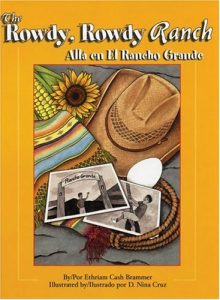 On El Rancho Grande, the grandchildren are not so interested in how Grandpa bought the ranch, but in what can be done on the ranch. The children play hide and seek in cornfields, under “the canopy of green leaves, golden threads and giant ears of corn.” They feed the family horses, ride the rambunctious pigs, and take frolicking dips in the duck pond. But through all of the outdoor escapades, their family stories are circling in the air, like the “sunflower wind” blooming around them. While drinking ice-cold lemonade in the sunshine, they hear about how Grandpa’s song of sorrow won him El Rancho. They hear about chickens that have abandoned their coops to live in Abuela’s chicken tree, and they even discover a story about a boy who cried chocolate tears. In those days of running and jumping, the narrator, Tito, did not realize that he was hearing the stories that would wrap him up “like an enchanted sarape to keep me warm for the rest of [his] life.”
On El Rancho Grande, the grandchildren are not so interested in how Grandpa bought the ranch, but in what can be done on the ranch. The children play hide and seek in cornfields, under “the canopy of green leaves, golden threads and giant ears of corn.” They feed the family horses, ride the rambunctious pigs, and take frolicking dips in the duck pond. But through all of the outdoor escapades, their family stories are circling in the air, like the “sunflower wind” blooming around them. While drinking ice-cold lemonade in the sunshine, they hear about how Grandpa’s song of sorrow won him El Rancho. They hear about chickens that have abandoned their coops to live in Abuela’s chicken tree, and they even discover a story about a boy who cried chocolate tears. In those days of running and jumping, the narrator, Tito, did not realize that he was hearing the stories that would wrap him up “like an enchanted sarape to keep me warm for the rest of [his] life.”
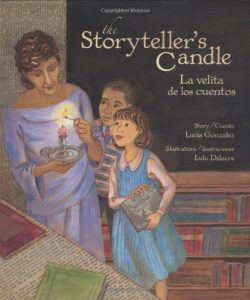 It is the winter of 1929, and cousins Hildamar and Santiago have just moved to enormous, chilly New York from their native Puerto Rico. As Three Kings’ Day approaches, Hildamar and Santiago mourn the loss of their sunny home and wonder about their future in their adopted city. But when a storyteller and librarian named Pura Belpré arrives in their classroom, the children begin to understand just what a library can mean to a community. In this fitting tribute to a remarkable woman, Lucía González and Lulu Delacre have captured the truly astounding effect that Belpré had on the city of New York.
It is the winter of 1929, and cousins Hildamar and Santiago have just moved to enormous, chilly New York from their native Puerto Rico. As Three Kings’ Day approaches, Hildamar and Santiago mourn the loss of their sunny home and wonder about their future in their adopted city. But when a storyteller and librarian named Pura Belpré arrives in their classroom, the children begin to understand just what a library can mean to a community. In this fitting tribute to a remarkable woman, Lucía González and Lulu Delacre have captured the truly astounding effect that Belpré had on the city of New York.